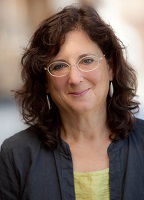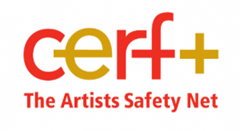In the era of climate crisis and pronounced natural disasters across the globe, civic and arts organizations around the globe have been called into conversation on how they play a role in emergency preparedness and relief efforts. It’s a necessary tool for arts leaders in the 21st century, and our alumni and faculty are taking up the charge.
Claudia Bach, long-time Arts Leadership Faculty, is the principal and founder of AdvisArts Consulting.  She is also the Project Director and course instructor for the Arts Ecosystem Research Project, a research initiative to document the Seattle arts and culture sector since the 1962 World’s Fair. Katy Hannigan, MFA ‘17 is the founder of Thread Support, a business that offers administrative and financial guidance to creative small businesses and non-profits. “Creating infrastructure and systems through which creative people can succeed is something that’s really important to me,” Katy explains.
She is also the Project Director and course instructor for the Arts Ecosystem Research Project, a research initiative to document the Seattle arts and culture sector since the 1962 World’s Fair. Katy Hannigan, MFA ‘17 is the founder of Thread Support, a business that offers administrative and financial guidance to creative small businesses and non-profits. “Creating infrastructure and systems through which creative people can succeed is something that’s really important to me,” Katy explains.
Through professional connections within the MFA Arts Leadership Program as well as previous consulting projects with organizations such as Artist Trust, Claudia and Katy have activated these resources to establish a partnership with CERF+, the Artists Safety Net, an organization that provides education, resources, networking, and emergency relief to help protect and sustain artists. Rachel Betron, Program Coordinator for Arts Leadership, sat down with Katy and Claudia to learn more.
CERF+ tasked Claudia and Katy with conducting research for the CERF+ Artists Readiness Program (CARP), a national program funded by the Andrew W. Mellon Foundation. This research project called for a deep dive into current and potential  disaster readiness, response, and recovery practices for diverse populations of artists within the US context.
disaster readiness, response, and recovery practices for diverse populations of artists within the US context.
They contacted community leaders and arts organizations, intentionally seeking stakeholders in different geographical and cultural regions of the nation. Claudia and Katy focused on communities at high risk of natural disasters, including but not limited to the following: earthquakes, hurricanes, snowstorms, and wildfires. They conducted interviews and organized focus groups as their primary methods. Findings across the board were revealing:
“[T]here’s two really big factors… One is that a little bit of preparedness can have a really huge impact. But the other is that the likelihood of being prepared is extremely low for most individuals,” Claudia says. To ensure all artists, especially artists within diverse communities, are emergency-prepared, requires awareness, resources, and systems at all levels. “This work needs to have foundational principles that address that intersectionality of need and of threat,” Katy adds.
While there are pre-existing arts organizations who tackle region-specific threats, such as the wildfires in California, there is still a need to educate burgeoning artists and arts leaders. Government institutions need to create policies that provide safer living conditions for artists and incentives for arts organizations to participate in prevention work. “Arts leaders won’t be first responders necessarily, but that longer term secondary and tertiary role I think is a space where there’s a lot of opportunity for us…to get into a ready-to-respond space” Katy suggests.
At the conclusion of their research, Claudia and Katy delivered their findings and recommendations to CERF+ in the form of a roadmap. The roadmap includes a list of 10 foundational and broadly conceived recommendations for communities to use in emergency response programs. “Readiness is incredibly important, but response ends up becoming what most people deal with… What has shaped some of our recommendations for this roadmap for CERF+, is the fact that artists serving organizations are likely to be the sites of response whether they expect to or not” Claudia elaborates.
In early 2020, CERF+ will announce and begin implementation of the first pilot projects. While the research is done, Claudia and Katy are hoping that the dialogue creates stronger capacity for crisis prevention and emergency relief. Claudia concludes, “The most critical thing is that these projects move forward… what's learned is shared more broadly, and can start to build a stronger network of communication… There [is] a lot of hunger for sharing that information.”
Learn more about artist readiness by following CERF+ The Artists Safety Net: https://cerfplus.org/.
Keep up with Claudia’s consultation work at AdvisArts Consulting.

